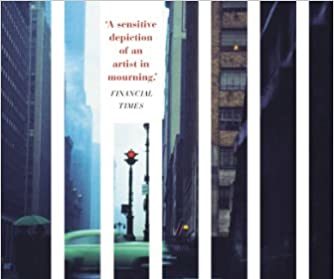Owen Martell and Mohsin Hamid share the stage at Hay 2013, discussing Martell’s latest novel Intermission and Hamid’s How ro get Filthy Rich in Rising Asia and how both use the conceit of metropolis.
Owen Martell begins his Hay talk by informing the audience that it was in this little town that his latest novel, the magnificent Intermission, was born. He was here at the festival to mark his Welsh-language Book of the Year 2001 Award when, while rooting around the town’s now sadly-closed record shop, he stumbled across a work by the jazz genius Bill Evans. Martell tells us how he became intoxicated by the music of the man who played on Miles Davis’s Kind of Blue and whose own band’s residency at a Greenwich Village club resulted in the best-selling album Sunday at the Village Vanguard. Over 10 years later, Martell has now delivered his Bill Evans book, his first novel in the English language.
However, as Martell says, he had no interest in ‘writing the sort of book you write about a famous person’. So, instead, Intermission covers the ‘lost months’ that followed the Village Vanguard concerts. This was a time when Evans went into seclusion when coming to terms with the death of his brilliant, young double-bassist Scott LaFaro. Martell’s novel records this period of grieving from the perspectives of four characters, including Bill himself. Evans’s awkward relationship with his uncommunicative family – each member with their own separate concerns – is to the fore. Evans hardly speaks or touches an instrument in the book. There is little in the way of celebrity walk-on parts or evocations of the 1960s metropolis Village music scene here – this is perhaps why, as Martell tells us, jazz junkies haven’t necessarily been lining up to praise Intermission. Rather, this ‘is a book about how we deal with absence’, Martell agrees when the suggestion is put to him. Martell’s prose is utterly beautiful. Intermission is a slow-moving, meditative gem of a book. It is ‘astonishingly empty’, as our chair says, in a neat and daring compliment. Martell is a writer for Wales to get excited about.
Martell is sharing the Hay stage with Mohsin Hamid, whose How to get Filthy Rich in Rising Asia is an entirely different beast to Intermission. If a page of Intermission can take ten minutes to read as you pore over the delicate prose, then a page of Filthy Rich can be devoured in little over ten seconds. And that’s a compliment to both books. Filthy Rich tells the story of a nameless man’s journey from impoverished rural boy to tycoon, while, all the time, his heart aches for his childhood sweetheart. The novel’s shape follows that of a business self-help book, with chapters such as ‘Move to the City’, ‘Get an Education’ and ‘Dance with Debt’. Everything is written as if instructing the reader. In a way, the reader is the lead character.
This conceit is a daring move by Hamid, but one which he pulls off magnificently. Hamid tells us he was moved to find this form because of his concern that people don’t spend time reading novels, particularly, he feels, in his native Pakistan. A sharp, easy, addictive read is what’s needed particularly in the subject of metropolis. So Filthy Rich is a serious read disguised as fluff. Filthy Rich is ‘jam-packed’ and over-flowing with ideas and information, seeming to cover an entire society and a man’s entire life in 230 pages. Filthy Rich is both a critique of capitalist society and a heart-breaking love story.
Hamid tells us he settled on the idea of a self-help novel as self-help is so ingrained in modern day culture. Hamid suggests that reading and writing are forms of self-help in themselves. ‘Why do we sit alone in a room for seven or eight years writing as adult men if not for that?’, Hamid asks, in probably the best rhetorical question of the festival.
Martell and Hamid both come across well: engaging characters, and both serious about the seriousness of their craft. Here are two young authors who have achieved a great deal, and who look set to achieve a great deal more.
‘Go to the signing tent, buy these books, and if you don’t like either book, I’ll personally give you your money back’, promises our chair at the end of the talk. Methinks Jon Gower’s beer money is safe, as Intermission and How to get Filthy Rich in Rising Asia in their perspectives on metropolis are books of rare quality.
Banner illustration by Dean Lewis
You might also like…
Dylan Moore chats to Hay Festival founder and organiser Peter Florence about celebrating its 26th anniversary and the Hay Festival Budapest series of events.
Jim Morphy is a regular contributor to Wales Arts Review.











